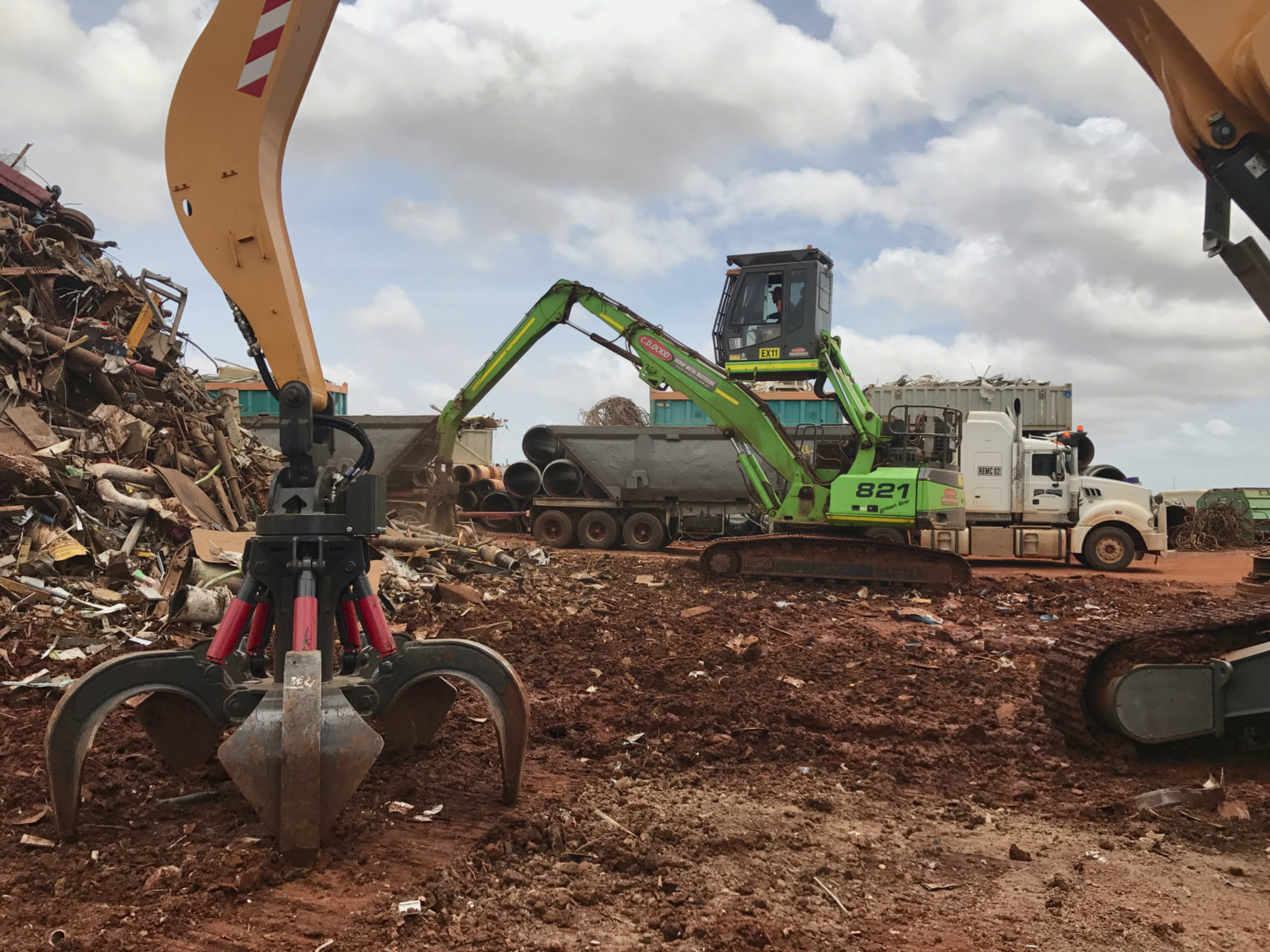The innovations driving change in scrap metal recycling technology
About 100 years ago, in 1914, BHP was the first company in Australia to recycle its steel. Fast forward to 2021, and scrap metal recycling is a $2.4 billion industry employing almost 2,000 people.
A lot changes in a century. Even in the last decade, massive technological advancements have enabled scrap metal recyclers to reduce our environmental impact, offer specialist services and improve the quality of recycled metals.
Let’s look at some key innovations driving positive change across the scrap metal recycling industry.
Innovations in scrap metal recycling
Environmental impact
Along with stricter industrial emissions standards and carbon offsetting, scrap metal recycling contributes to a cleaner environment in many ways:
- Significantly reducing raw material production
- Reducing water, energy and land use
- Cutting landfill
- Reducing post-consumer waste
- Salvaging valuable metals like copper, gold and aluminium
Every tonne of scrap metal recycled in Australia minimises the amount of raw material required to keep our economy moving.
Mine recycling
BHP might have been the first miner to recycle scrap metal, but they weren’t the last. Here at CD Dodd, one of our specialties is demolishing and recycling mine sites.
We conduct intensive site clear-outs in some of WA’s most remote locations using responsible, efficient methods.
Mining is one of Australia’s biggest industries – and mining projects use a lot of metal. Advancements in scrap metal recycling processes keep improving the quality of that material, so it can be used repeatedly for projects that boost local economies.
E-waste
Scrap metal recycling changed suddenly (and permanently) with the rise of electronic devices like smartphones, tablets and laptops. Modern devices contain high-value metals:
- Gold
- Copper
- Silver
- Aluminium
Recycling gadgets like personal devices, toys, screens, and office equipment reduces the impact e-waste has on the environment.
Battery recycling
The CSIRO estimates only 2% of Australia’s Li-Ion battery waste ends up in a scrap metal recycling facility right now.
However, 95% of battery components are reusable. The trouble is, not all scrap metal recyclers are serious about battery recycling. We’ve invested big in battery recycling, offering collection services in Karratha, Kalgoorlie, Perth and the South-West and advice for battery drives in local communities.
We believe battery recycling is a smart choice. Find out more about CD Dodd’s fully licenced state-wide battery recycling services here.
Computerisation
Some scrap metal recyclers still remember when material was sorted by hand. Receipts were hand-written, inventory was taken manually, and sorting had inherent safety risks.
But those days are behind us. Automated scrap metal recycling systems are getting smarter all the time.
- Laser object detection (LOD): Lasers scan for ferrous and non-ferrous metals, removing unusable material for cleaner scrap recycling.
- X-ray fluorescence (XRF): X-ray scanning detects the components in scrap metal, sorting material automatically depending on its elemental make-up.
- Process automation: Automation supports these detection systems by reducing manual labour, preventing injury, improving processing accuracy, and making scrap metal recycling more efficient at every stage.
What’s next for scrap metal recycling technology?
Exciting new technologies and software solutions are emerging to make scrap metal recycling more efficient and environmentally conscious. At the same time, businesses are paying more attention to the benefits of recycled metal (and recycling their own scrap).
We’ll look into our crystal ball and revisit this topic in a later post. For now, if you have questions about your scrap metal recycling or battery recycling needs, the CD Dodd team is always here to answer your call.
